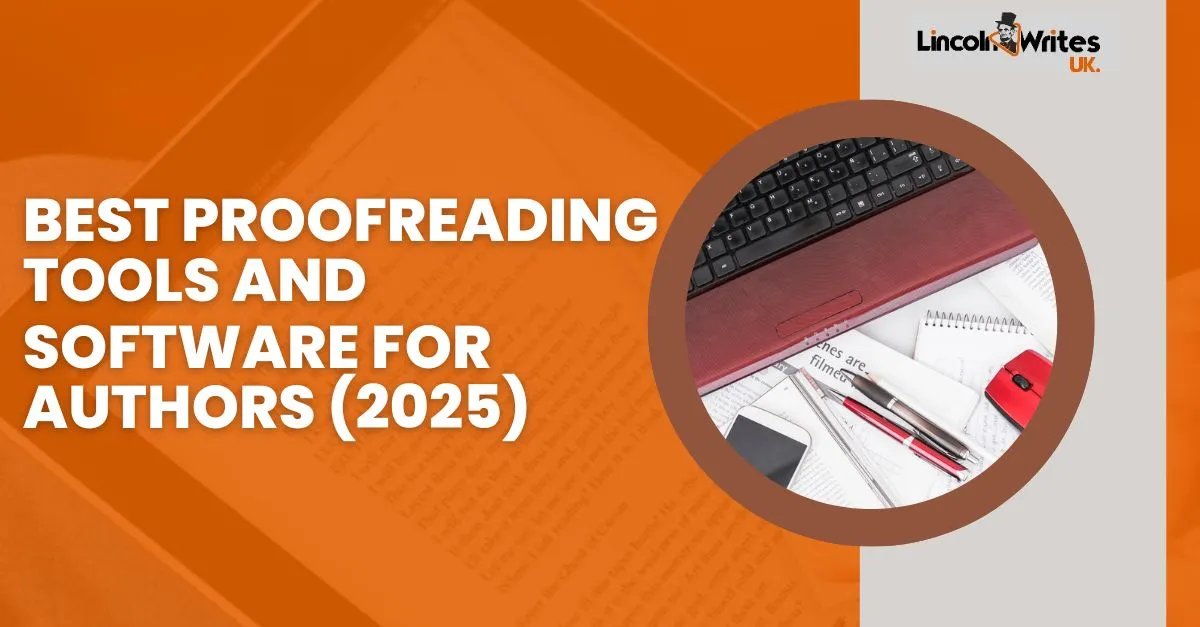You’ve poured your heart into your manuscript. Maybe it’s an inspiring tale written through memoir ghostwriting, a business guide crafted under a ghostwriter’s tight deadlines, or even a thriller penned between client calls. But before it meets the eyes of readers or publishers, you need to clean it up.
That’s where the proofreading tools 2025 come in.
Even the best writers miss a misplaced comma or a wonky sentence now and again. And while nothing beats the precision of a human proofreader, software can catch dozens (if not hundreds) of errors in minutes, and save you some embarrassment along the way.
In this post, we’ll cover the best proofreading tools available in 2025, compare their features, outline pricing, and explain which ones are best for which types of authors. Whether you’re writing fiction, nonfiction, or launching your own book proofreading services, this guide’s got you sorted.
Why Use Proofreading Tools?
Here’s the thing: even if you plan to hire a professional (and you should, more on when to hire a proofreader later), using tools during your draft phase can:
- Improve your writing as you go
- Catch repetitive grammar issues
- Speed up the editing process
- Reduce the workload for your final proofreader (which means lower costs)
Tools can’t replace humans, especially for context-sensitive content like ghostwriting legal aspects, but they can definitely tidy up the mess before the pros step in.
Top Proofreading Tools and Software for Authors in 2025
1. Grammarly Premium
Best for: Everyday writers, bloggers, business authors
- AI-powered suggestions for grammar, clarity, tone, and conciseness
- Includes plagiarism detection and readability scoring
- Custom style guides (great for teams and publishers)
Price: £12/month (annual plan)
Pros: User-friendly, great for catching obvious errors
Cons: Not always contextually accurate for creative writing
Grammarly is a go-to tool for authors, especially those handling their own proofreading in self-publishing.
2. ProWritingAid
Best for: Fiction and creative non-fiction authors
- Offers reports on pacing, dialogue tags, sentence variety, and overused words
- Built-in proofreading checklists and style checks for genre-specific writing
- Integrates with Scrivener, Google Docs, and Word
Price: £70/year or £399 lifetime
Pros: Deep style analysis, affordable lifetime license
Cons: The Interface is a bit clunky compared to Grammarly
If you’re writing a novel or doing memoir ghostwriting, this tool helps with flow and mechanics.
3. Hemingway Editor
Best for: Writers wanting concise, punchy prose
- Highlights complex sentences, adverbs, and passive voice
- Gives readability scores (great for clarity-focused genres)
- Web and desktop versions available
Price: Free (web), £20 one-time (desktop)
Pros: Clean, distraction-free interface
Cons: Doesn’t catch spelling or grammar, just style
Ideal for authors aiming for a strong, minimalist voice, like those using business leader ghostwriting strategies.
4. Slick Write
Best for: Budget-conscious authors
- Browser-based, with reports on structure, sentence length, and grammar
- Customisable settings to suit your writing style
- Built-in analytics to help improve long-term habits
Price: Free
Pros: Good for quick checks
Cons: No AI context support or deep stylistic analysis
Pair this with human review, especially if you’re preparing for ebook publisher marketing support.
5. LanguageTool Premium
Best for: Multilingual authors or global readers
- Supports over 20 languages (with regional grammar rules)
- Suggests style and tone improvements
- Integrates into browsers, Google Docs, and Word
Price: £5–9/month
Pros: Language flexibility, useful for authors with international audiences
Cons: Limited fiction-specific features
Great for authors publishing in multiple markets via ebook distribution channels in the UK and beyond.
Choosing Based on Budget
| Budget | Tool Suggestions | Recommendation |
| Free | Hemingway, Slick Write | Use for draft-phase cleaning, then hire a proofreader |
| £5–10/mo | Grammarly, LanguageTool | Ideal for authors who write often or across platforms |
| One-time | ProWritingAid (£399 lifetime) | Great value for long-term authors or those managing a series |
| High-End | Combine tools + professional | For high-stakes projects like ghostwriter ROI or legal-heavy content |
What Tools Can’t Catch (and Why You Still Need a Pro)
Even the best proofreading tools 2025 can’t:
- Understand character nuance
- Catch plot inconsistencies
- Fix voice, pacing, or tone
- Interpret specialised formatting (like proofreading symbols)
- Spot genre-specific errors in traditional vs ebook publishing formats
That’s why, no matter how smart your tool is, it should be a supplement to real book proofreading services, not a substitute.
This is doubly true for technical manuscripts, sensitive life stories, and legal content handled through ghostwriting legal aspects. In these cases, accuracy isn’t optional. It’s essential.
Using Tools for eBook Publishing
If you’re planning to choose ebook publisher routes instead of traditional ones, tools can help you prep:
- Your manuscript for upload
- Your metadata and descriptions
- Marketing copy and newsletters
This ensures you’re delivering professional-level content even if you don’t have a team behind you.
It’s also aligned with major ebook publishing trends 2026 UK, where AI-powered content and quality assurance tools are increasingly shaping the self-publishing space.
Final Thoughts
Choosing the right proofreading tools in 2025 is about more than picking the one with the most features. It’s about selecting a tool, or a combination of tools, that fits your writing process, genre, and goals.
At Lincoln Writes UK, we pair tech with talent. Whether you need a detailed proofread or expert guidance to get your manuscript submission-ready, our book proofreading services ensure your words don’t just look good. They resonate.
Ready to combine smart tools with sharper human insight? Let’s polish your manuscript the way it deserves.


